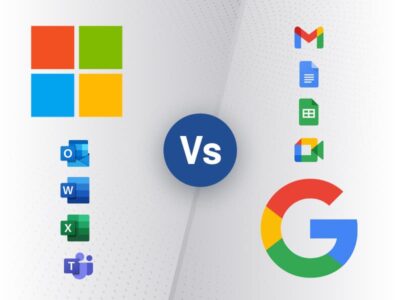A key growth point for business involves building IT, and the corresponding decision is “When should we hire an IT resource?” Small enterprises often start with a person who knows computers
better than anybody else, and who by default becomes the responsible party. They may be younger or more technological aware, or the CAD engineer with the best computer, or the hobbyist that tinkers at home. The  organization is strapped for funds, buys PCs on sale at Best Buy, and cobbles together something that works most of the time. Users are appreciative when the IT specialist finally gets around to looking at their issue, and rigs a solution from what they can find on Google. Eventually the organization grows to the extent there is a clear need for more capable and available help. The person responsible for IT now views it as a burden, and the business needs more reliable and capable information technology.
organization is strapped for funds, buys PCs on sale at Best Buy, and cobbles together something that works most of the time. Users are appreciative when the IT specialist finally gets around to looking at their issue, and rigs a solution from what they can find on Google. Eventually the organization grows to the extent there is a clear need for more capable and available help. The person responsible for IT now views it as a burden, and the business needs more reliable and capable information technology.
So now the decision: “Should we hire a dedicated IT resource?” and leaders faced with this are usually thinking about one person who does ALL the IT.
Some critical points to consider when deciding.
- Information Technology is a broad field, and depth is needed in multiple areas including security, email, databases and reporting, PC help desk, network components, servers, and more. Being a single jack of all trades and master of none is a recipe for poor decisions, wasted funds, and lost data or access. Any errors in these functions will create a host of issues in the business.
- Certain ratios are helpful to understand. In most businesses, you would have at least 40 users per IT person, and no more than 75-100. This can vary by industry, systems and software deployed, and the number of locations supported. If you are reading this to help you decide now for your growing business, it is likely you have at least 30 users and various issues with IT, like low reliability, long resolution times, security issues, etc. We have determined that you need nine or more employees in IT to get the special focus and depth needed to maintain systems adequately.
- Who will oversee the IT person? To oversee an area, you need a basic understanding of what is being accomplished. The IT resource will bring requests to spend money and take certain actions you may not be equipped to decide competently. Every day may feel like a trip to the auto repair shop, with more costs than you planned for and things you’re not sure you need. We have seen what looks like an “IT Toy Store” in some businesses, where the IT team purchased expensive gadgets at company expense and had no ability to even use them.
- Too Expensive – To meet the needs of the diverse areas of point 1, you cannot hire in a way maintains a ratio of point 2 that makes economic sense. You would need about nine employees in IT, but you see the obvious high costs of having nine IT techs supporting 40-80 users. Not only is it expensive, you only need them part time and at unpredictable points; an IT security specialist for 4 hours a month, an email specialist for 6 hours per month, a help desk person for 18 hours, etc. Most of the time they would sit and finding new ways to spend your money.
I need solid IT, so what other options do I have instead of hiring an IT Resource?
For basic IT needs of a small to medium sized business, engage a Managed Service Provider (MSP). The god firms that do this have all the skills and specialized tools, and are available to you when needed. By doing this, you will get:
- A whole team for about the same cost as a dedicated IT person. You will get the broad and deep knowledge needed for a solid IT platform for your organization.
- Multiple people and views of a problem – reduces risk of a key employee leaving with the “keys to the kingdom” and being stuck with a single perspective of any problem.
- Contracted for results that business leaders can understand, so the impact of a lack of knowledge about IT is minimized. Instead of deciding about expensive tools, you are focused on making business decisions that will make a clear difference.
- A win-win relationship – The MSP is being contracted for reliability and safety of IT systems, and user productivity. They are incented to build systems that are reliable, because when you have an issue, your profit and capability is affected, but so is the MSPs. If you get an invoice and a report with zero problem tickets – congratulations!
- Pay for just what you need – You are paying for results, not hours, so just focus on that and don’t worry about idle employees.
Then When and Who Should I Hire when I am Building IT?
As close to the users and core business as possible. A business or data analysts. If you have funds to invest which will make a difference, find a person who can understand your business process, your data and have the skills to query it. MSPs will provide the baseline needs of the platforms and users, and do it better than an employee. But because they work with many organizations, they will not usually be as engaged about the specific data you collect and how you use it as a skilled employee would. A business or data analyst will be part of your team, and be listening for where data will improve the business process. They will learn your data and understand your ERP system, your spreadsheets and Access databases, and help you improve and leverage these. This improves your understanding of the organization and decision making.
Think of it like a car. The MSP makes sure your car is ready for a long trip with no issues and follows in a van with a bunch of mechanics and tools. The data analyst will be in the car with you looking at maps, great places to go, hotels, and restaurants to guide you on the trip. Result: Best trip ever.
You will have a team of skilled people, and one highly engaged in your business. You will have the best of all worlds and be ready for growth and competition.
If you continued to add, and your culture valued it, the next skill would be a help desk engineer that understood the users, the systems, and was readily available to help. This may be advantageous if you have 100 or more users, and culturally value this availability. The help desk engineer would not work on backend systems and would not do a lot of data queries like a business analyst, but would focus on user needs with users on PCs, mobile devices, printers, etc. Your MSP may also provide an onsite person for some or every day of the week.
How can Keystone Help?
Keystone is a Managed Service Provider, an excellent one. So, when you need IT help, it is a great resource to engage to improve your organization’s IT function.
And once engaged, we can also help with identifying and bringing in a data analyst. We have helped numerous companies with this, resulting a team you can be proud to have.
Contact us today to improve your IT.




